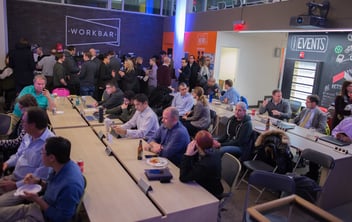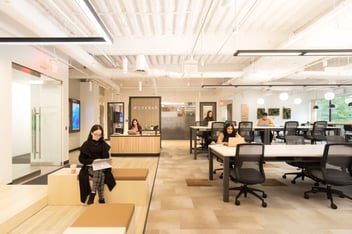Social Innovators Come to Cambridge for Workbar Speaker Series Panel Moderated by Tito Jackson
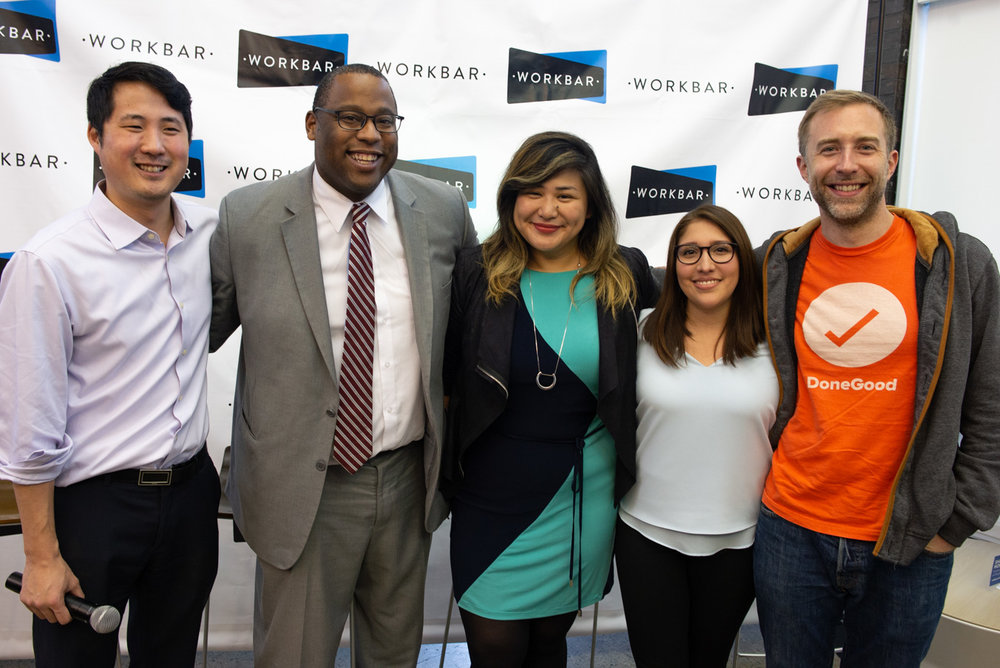


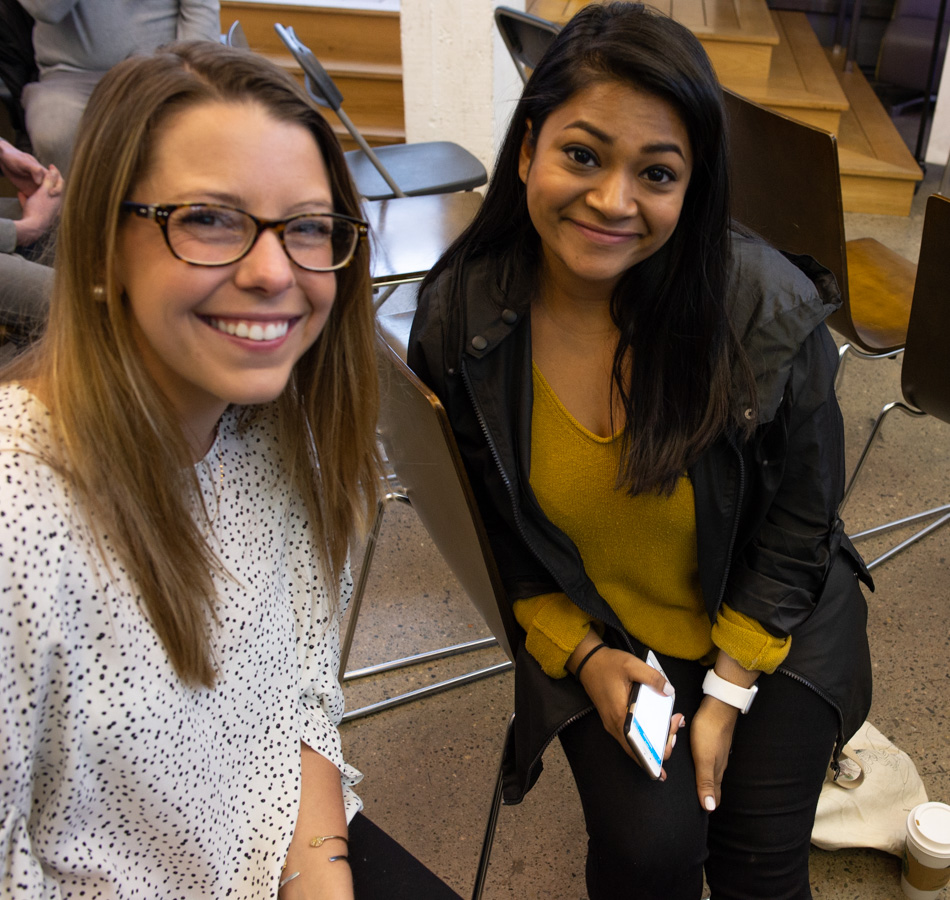
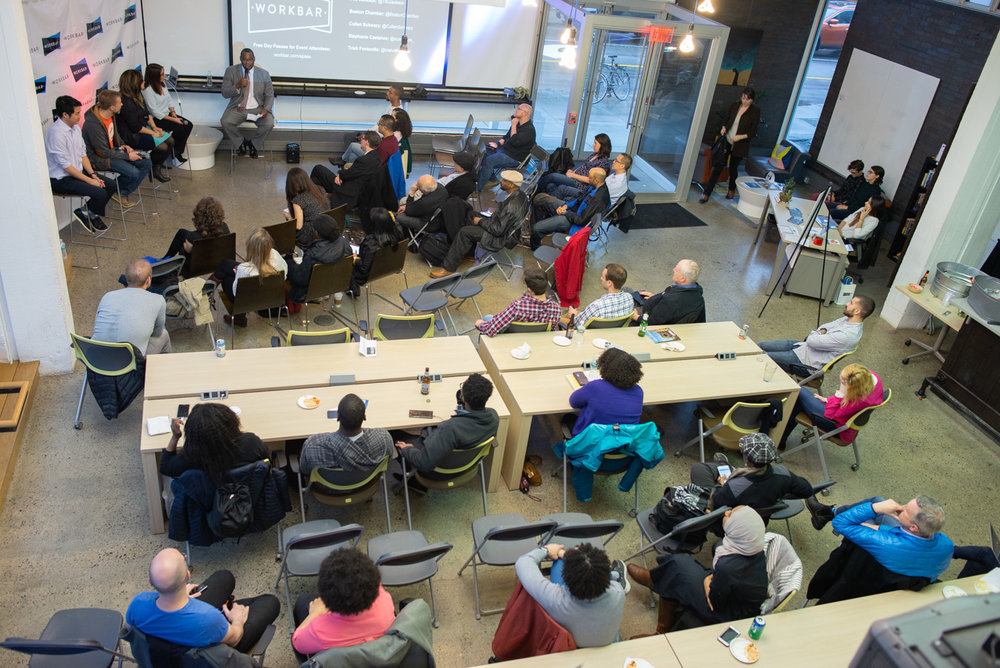

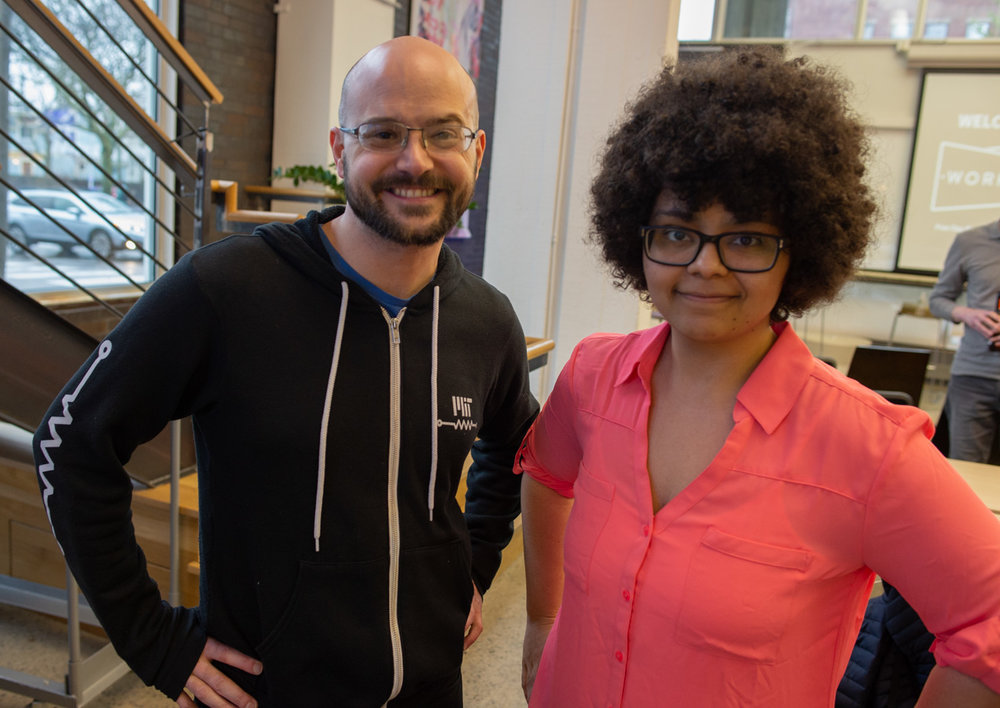

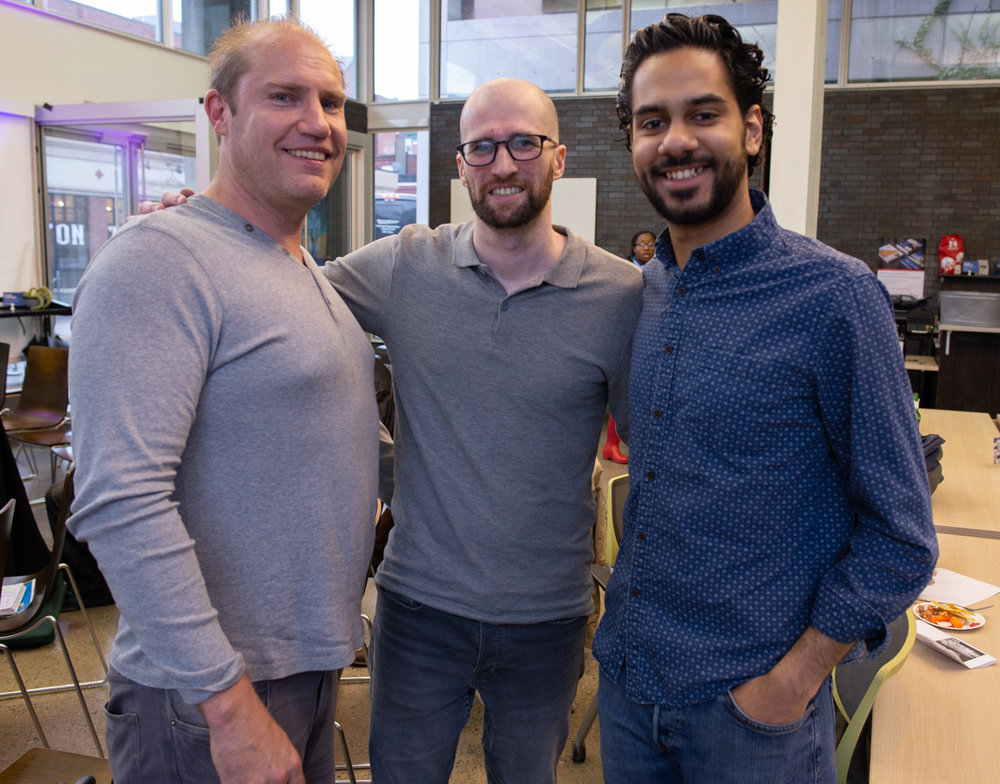


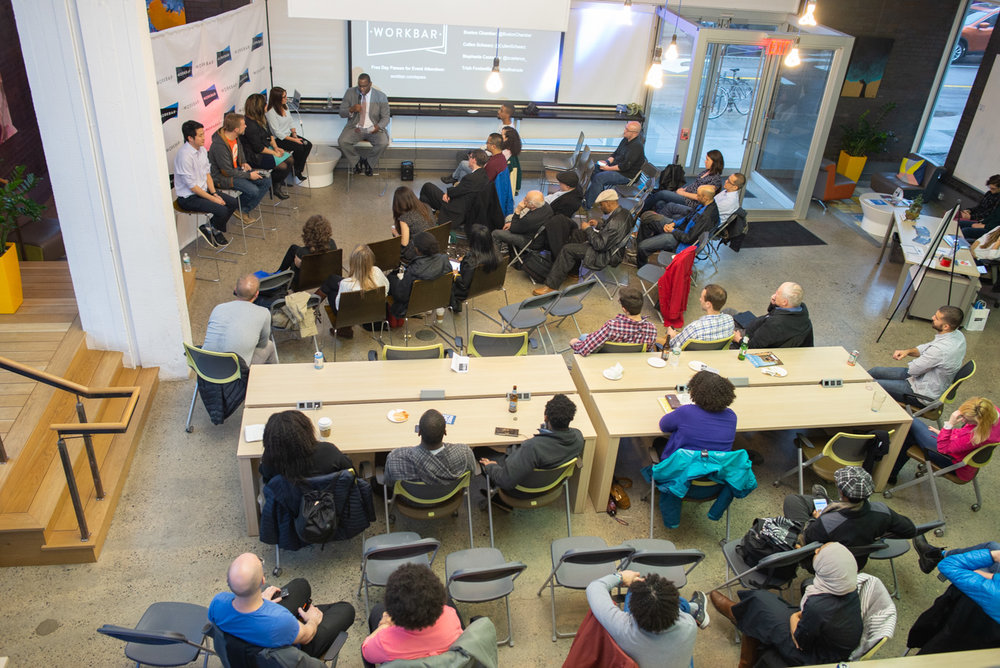
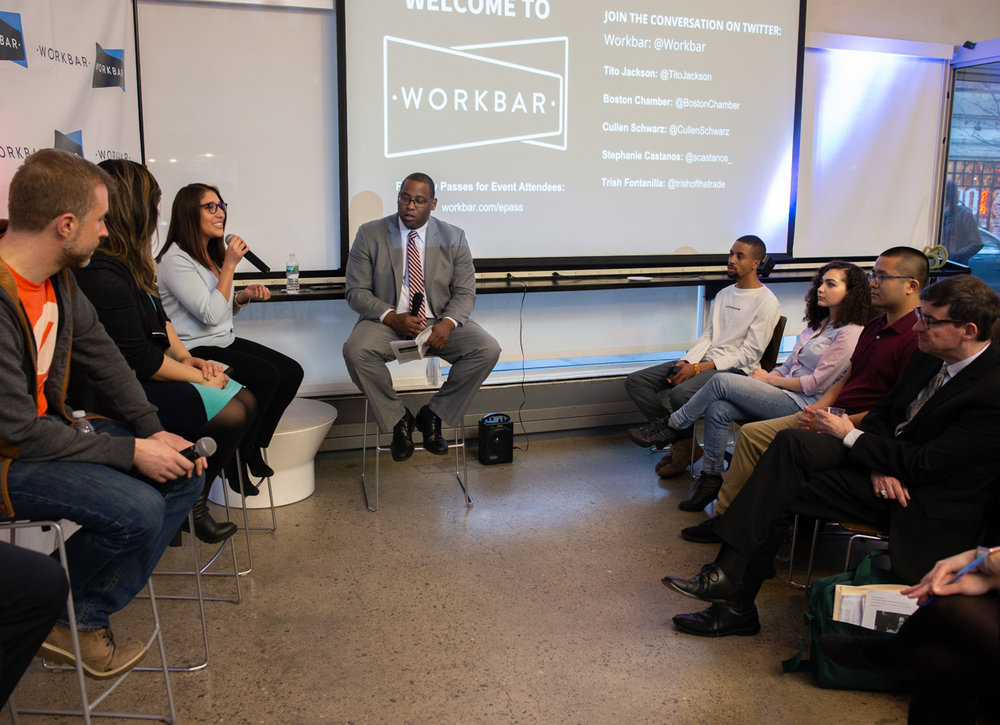
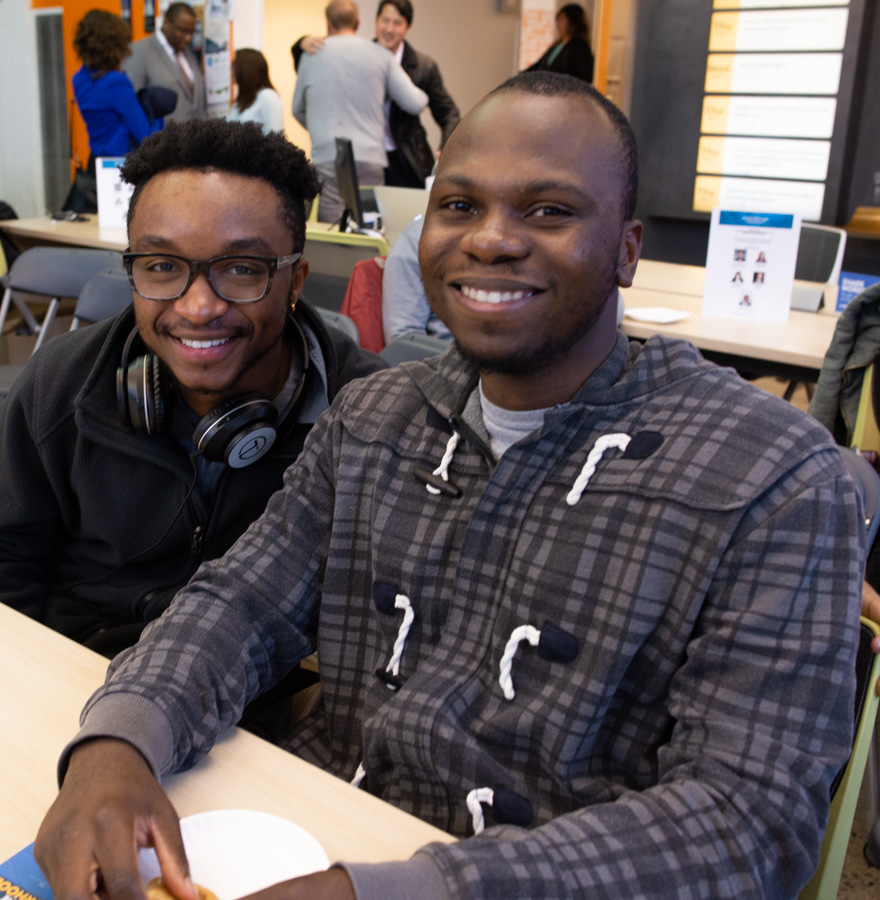
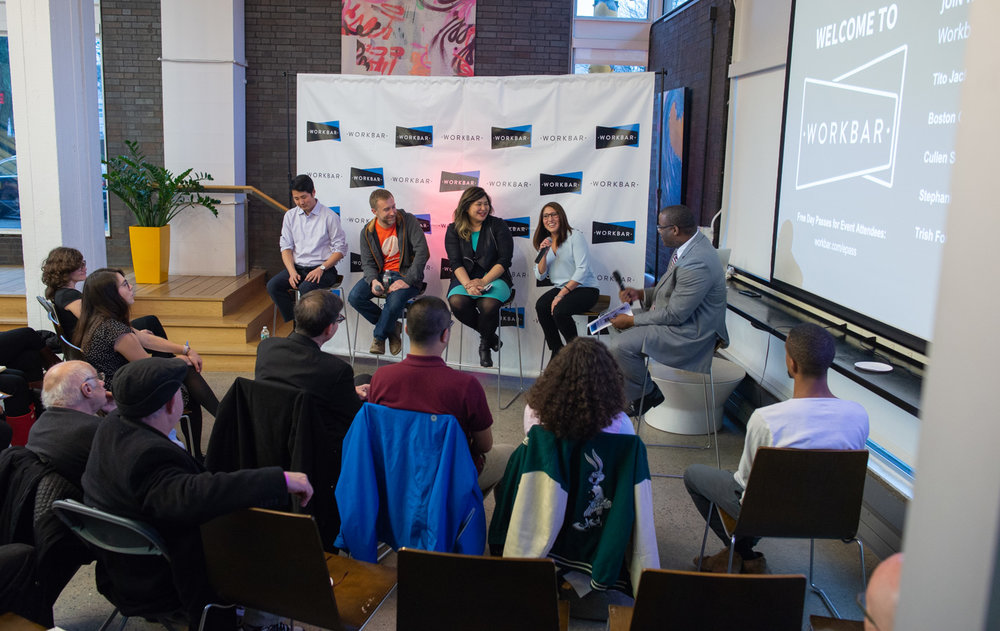

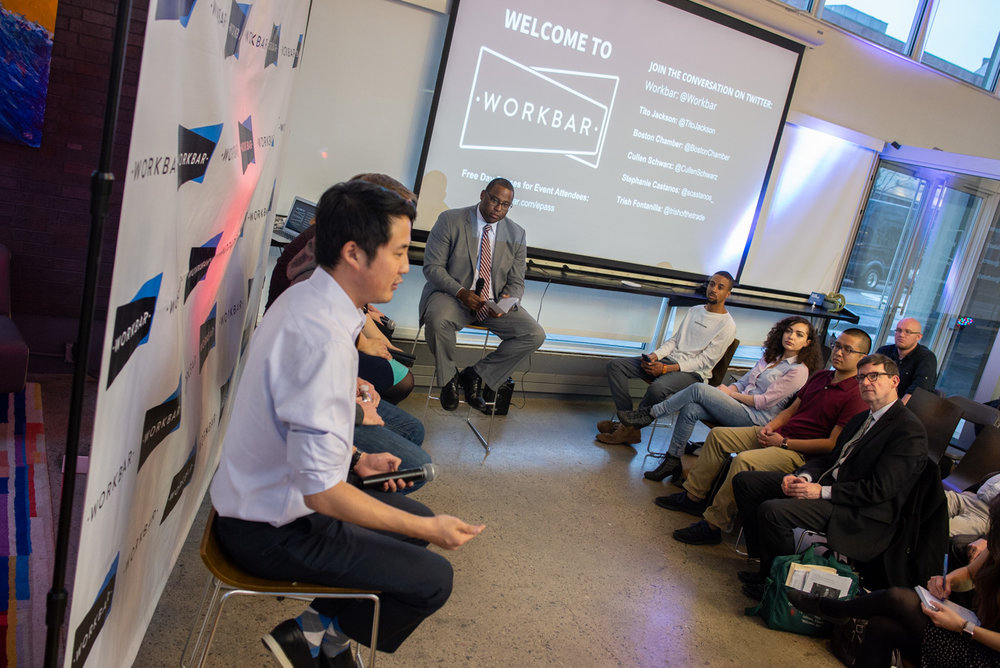
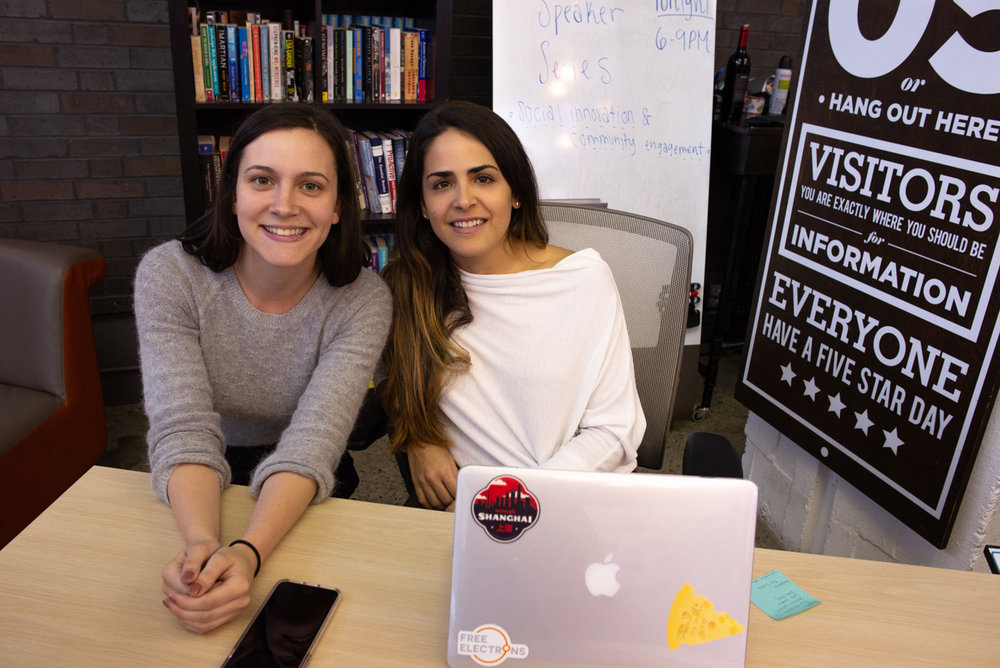
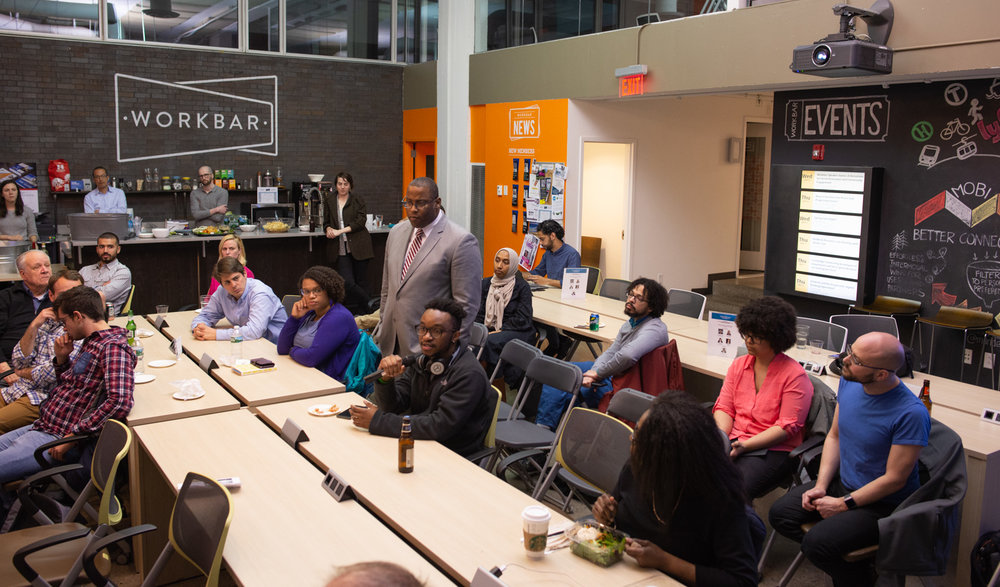
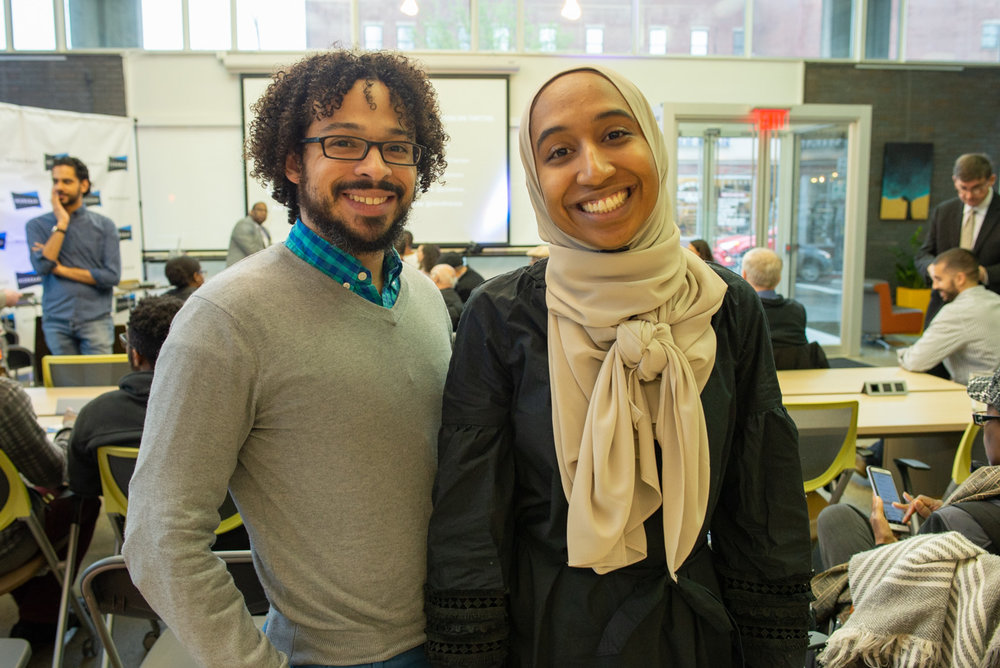
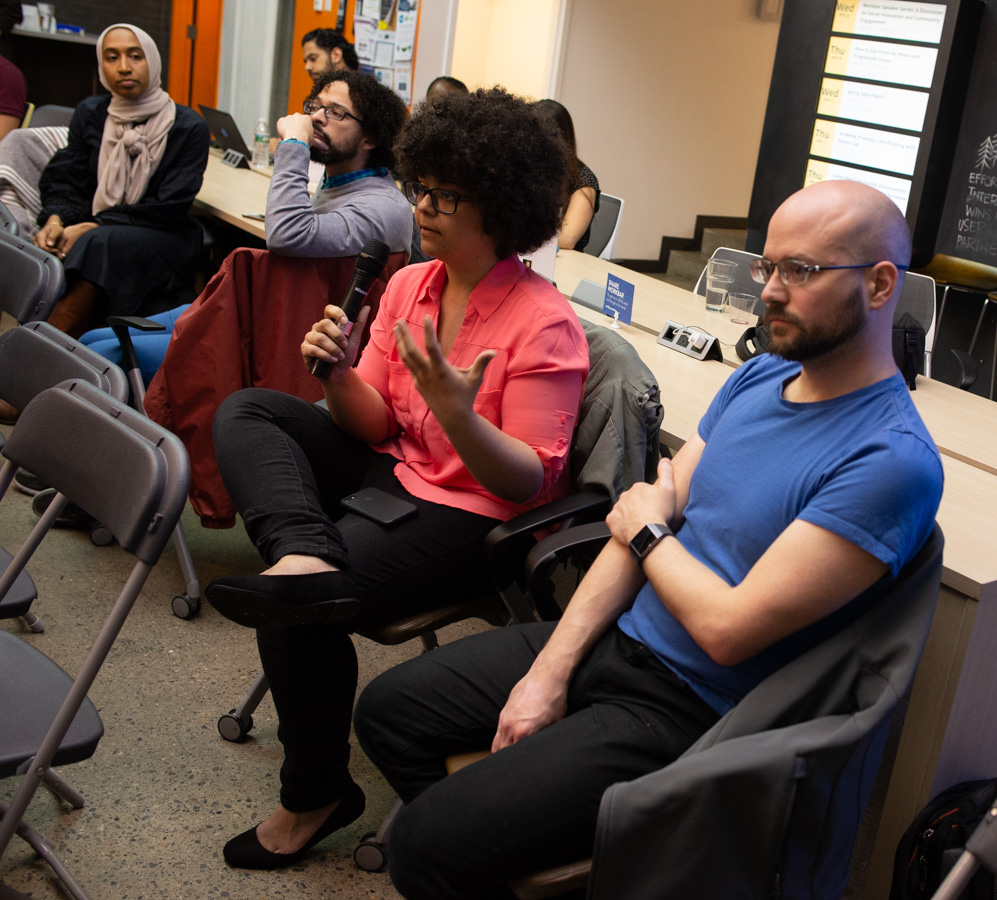
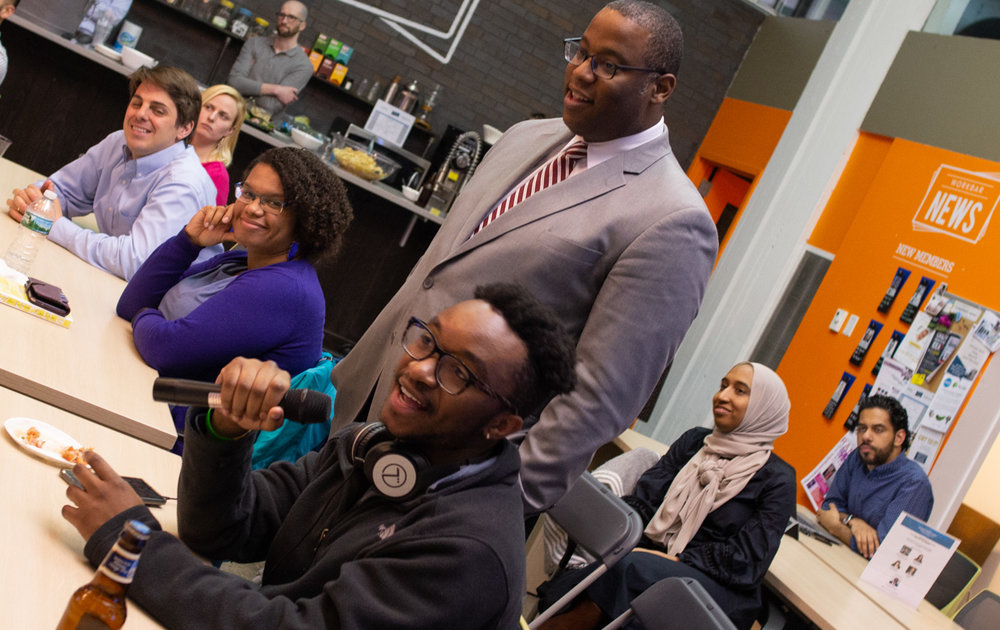
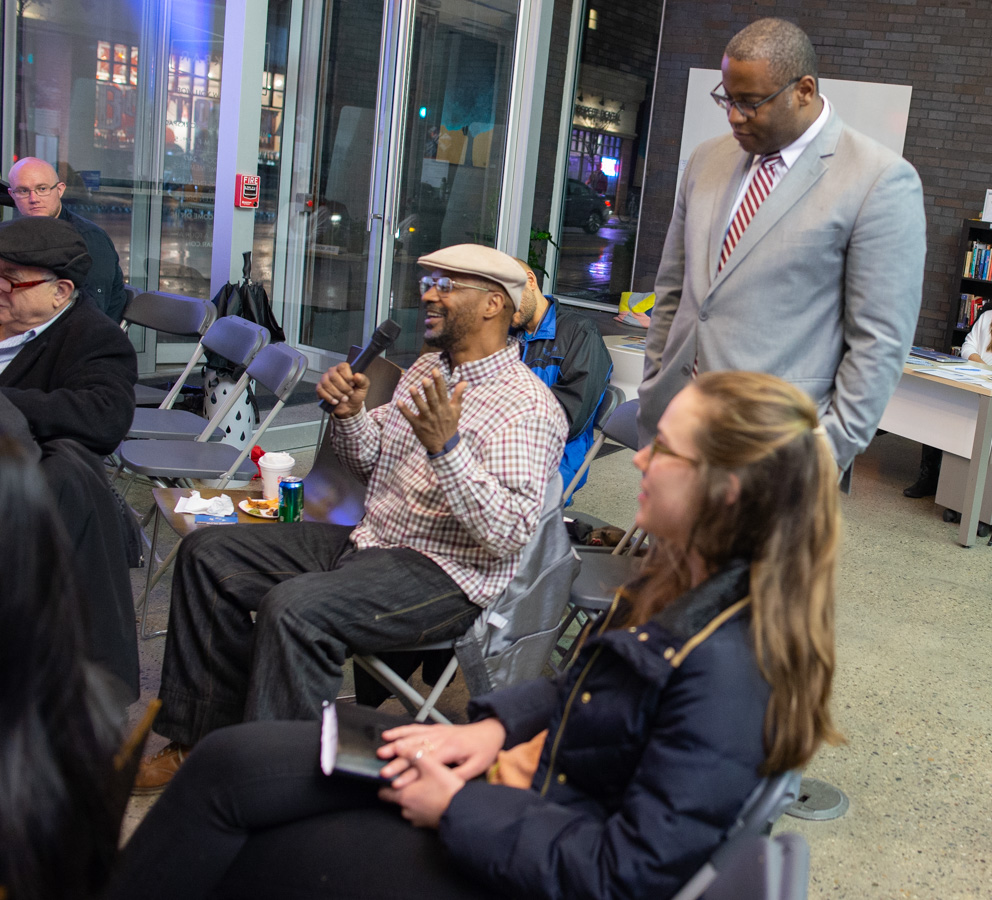
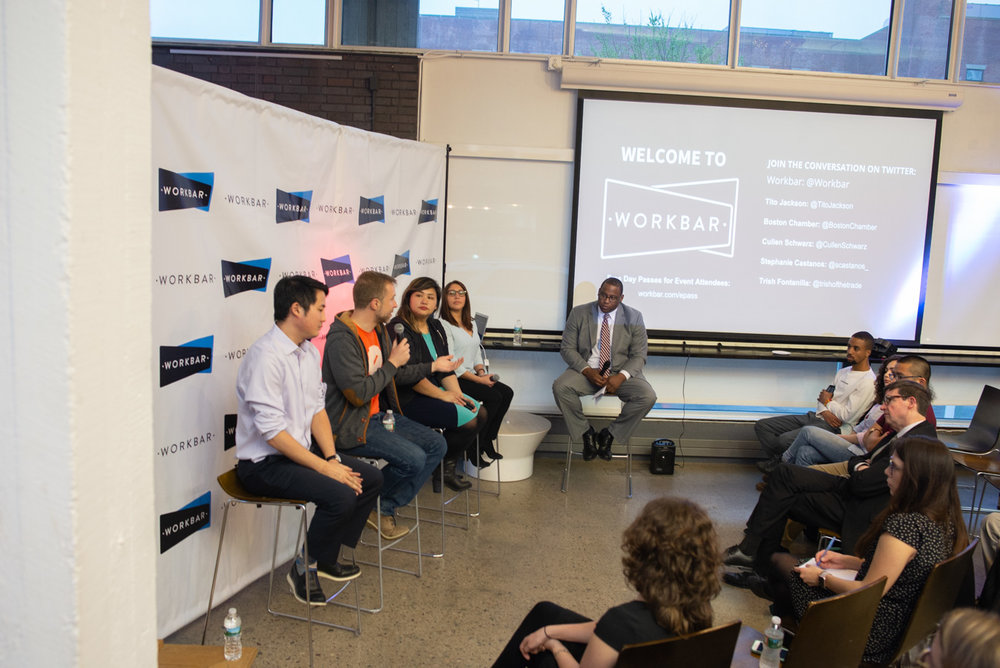
Photos by Workbar Member Sooz.
Anyone who has explored the business scene in Boston knows the city enjoys many features that make success more achievable for entrepreneurs, such as great talent coming from some of the world’s best universities, plenty of capital and willing investors and a progressive local government that supports innovation initiatives.
However, even in a city where the innovation scene is growing and evolving every day, a number of social issues are threatening progress and jeopardizing the positive impact the startup and tech world have had on the local communities.
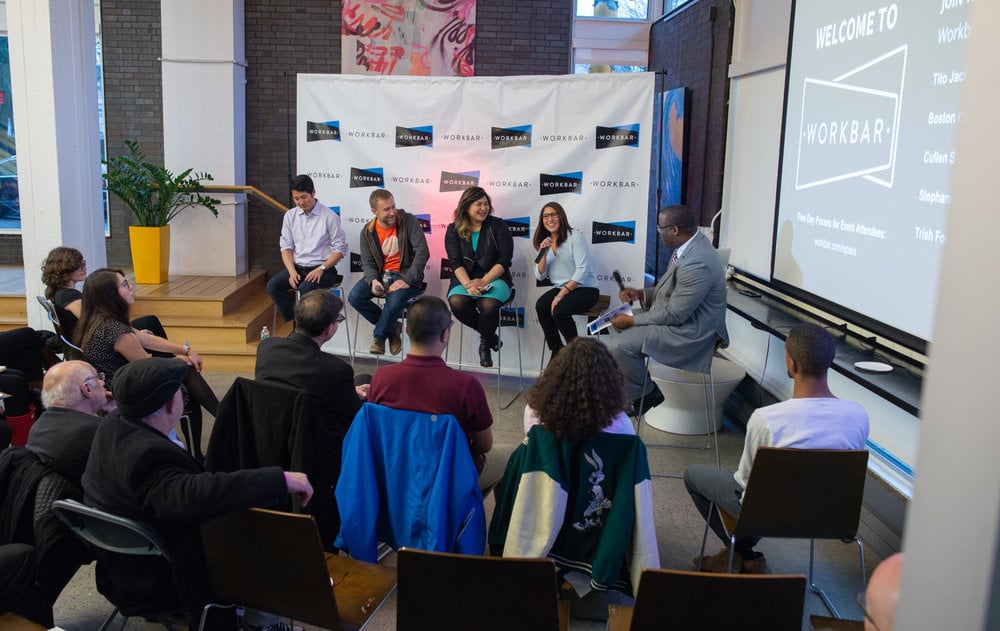
Photo by Sooz.
Rich Conversation on Social Innovation
During an interactive discussion at Workbar Cambridge, a coworking and shared office space in Cambridge, moderated by former Boston City Councilor Tito Jackson, panelists Justin Kang (Greater Boston Chamber of Commerce and City Awake), Cullen Schwartz (co-founder of DoneGood), Stephanie Castaños (Resilient Coders) and Trish Fontanilla (community organizer) tackled topics related to race, gender, diversity and inclusion in Boston.
Coming from diverse backgrounds and industries, the panelists shared their experience navigating Boston’s startup community and provided insight on how entrepreneurs can use business and non-profit work to build stronger, more inclusive communities.
“One of my mentors once told me ‘You need to learn how to use business for social good’ and I believe it, it’s really important for organizations to find the intersection between being successful and being socially engaged.”
Changing Boston’s Reputation Around Race
While an attractive city for students and professionals because of its thriving business environment and famous academic institutions, Boston is also a destination that presents challenges to people of color. Speaking about Boston’s talent retention among millenials, Justin Kang explained that one of the top reasons why young people leave the city is because of its reputation of being racist.
“The biggest challenge to social and civic innovation in this city is the negative reputation of Boston around race. It’s something that is affecting the brand of the city, it’s affecting business and it’s keeping us from moving forward.”
Pay Disparity Hurting Minorities
Speaking about the challenges facing minorities in the workforce in Boston, moderator Tito Jackson noted that the pay disparity between residents of the Back Bay neighborhood, historically one of the wealthiest in the city, and Roxubury, a predominantly African American and Latino neighborhood, is directly impacting people’s health.
“Roxbury and Back Bay are about two miles apart. Life expectancy in Back Bay is almost 92. In Roxbury, it’s 59. That is lower than life expectancy in Congo and some other countries in Africa.”
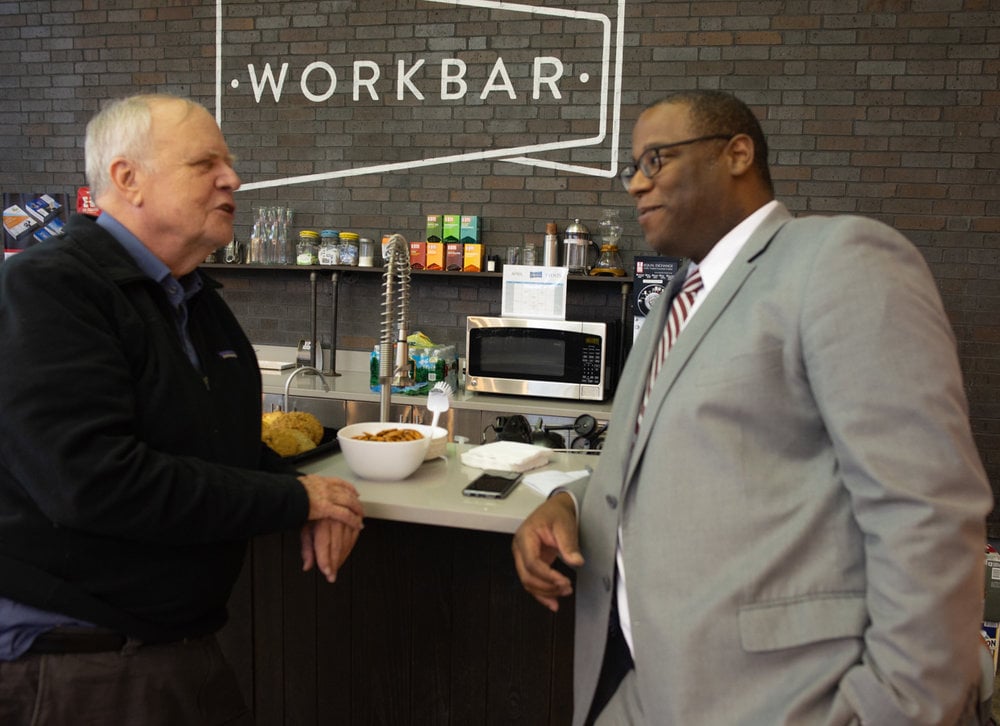
Photo by Sooz.
The statistic supports the idea that underserved communities in Boston are yet to benefit from the city’s thriving tech and startup environment. However, there are local organizations working diligently to close the gap and help minorities gain professional development and grow their income. A great example: Resilient Coders, a non-profit that teaches people of color how to code and helps them find internships and apprenticeships in tech companies.
Hiring for Diversity in the Tech Industry
Elaborating on the connection between race and professional success, panelist Stephanie Castaños, a Relations Manager at Resilient Coders, shared that while organizations like hers, that help folks gain professional skills to enter the workforce, the power to change how society operates around race and income ultimately lays in the hiring businesses.
“If you have a company, it doesn’t end with hiring a diverse team, if you hire a person of color, a woman, you now have to offer opportunities to help them become leaders, to advance their career and potentially earn more money.”
Advice to Aspiring Social Innovators and Entrepreneurs
When asked what makes a good social innovator, the panelists agreed that caring about the issue you are a trying to solve with your business should be priority number one, and that in order to fix a social problem, one needs to be ready to fully commit.
“Starting something is really hard. Entrepreneurs struggle all the time. What keeps us going is the idea that what we are doing is the single most important thing in the world. So you need to make sure you find that thing.”
“Social media is great for sharing ideas, but for me, the really important thing to reach progress is to show up for the cause. You can’t think that you clicked ‘retweet’ and your work is done. Today we are seeing marches and protests and people actually committing and showing up to fight for change.”
“The most important traits in entrepreneurship and social innovation are humility and empathy.”
Workbar Speaker Series is a monthly event that connects local innovators and leaders in the Boston community and offers an interactive space for discussion, conversation and networking. With different topics and speakers each session, the event looks inspire attendees with insightful contributions and to create a positive footprint in the innovation scene.
Join us this May 24th for a Speaker Series Panel on The New Age of Localized Marketing.
